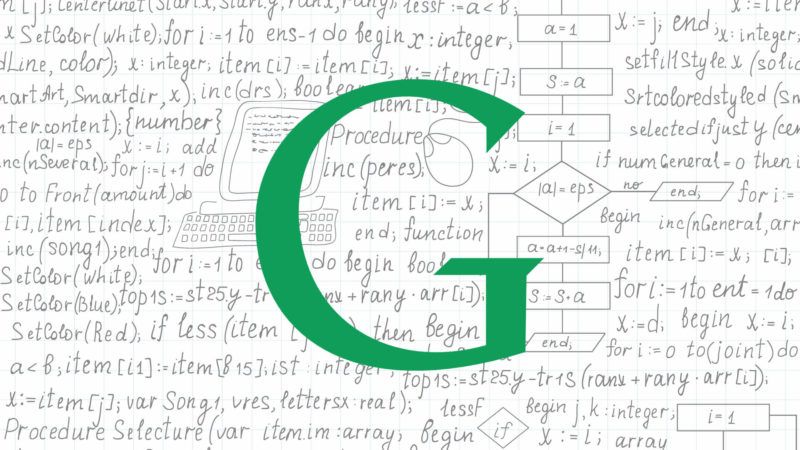Reaction: What SEOs Think About Facts & Answers Showing In Google Search Results
Last week, Google officially rolled out Structured Snippets, the search giant’s move to show snippets of relevant data directly in its search results. According to Google, the content being displayed is powered by its Knowledge Graph, as well as other data sources. As Search Engine Land news editor Barry Schwartz noted in his article, “Where […]

Last week, Google officially rolled out Structured Snippets, the search giant’s move to show snippets of relevant data directly in its search results.
According to Google, the content being displayed is powered by its Knowledge Graph, as well as other data sources.
As Search Engine Land news editor Barry Schwartz noted in his article, “Where You’ll Find Google Structured Snippets,” the overall concern around Google’s increasing activity of pulling website content directly into search results is that webmasters and publishers will see fewer clicks to their websites.
While there’s little to be done once Google makes a decision on how it displays search results, we asked five leading SEOs their thoughts on Structured Snippets and Google’s continued action to pull website content that doesn’t belong to them.
Here’s what they had to say:
SEO Reactions to Structured Snippets
Ann Smarty
Are you concerned about Structured Snippets?
Smarty: Actually I haven’t seen enough examples to be worried yet.
From what I’ve seen, that additional info is not at all satisfying. Rather, it shows the user there’s more info inside. The structured snippets make the listing stand out and seem to spur some interest.
So no, so far I am not worried.
In general, how concerned are you about Google’s increasing activity around pulling answers off web pages to show directly in search results?
In general, I do feel concerned about Google trying to become more of a publisher than a search engine. But if we are talking about this specific case, I actually like the fact that they are not moving that responsibility onto webmasters, and instead, trying to figure that information on their own.
They are not going out to say, “Use this code, spend hours re-coding your web pages and you may be lucky unless we cancel this experiment in a couple of years.”
This time they are just making use of already existing code and information which I’d love to see in the future.
Eric Enge
What’s your take on Google’s Structured Snippets?
Enge: I do think that lots of people are going to worry about these types of snippets from Google. It’s only natural.
As you can see in the Superman example below, the data is being pulled off the imore.com website and presented in the SERPs.
I think there are two interesting questions here:
1. Is the information shown by Google in the public domain?
I am not a lawyer, but I believe that I can use any information that is in the public domain as I see fit, as this type of information cannot be copyrighted.
For example, Olympia is the capital of Washington. I may learn that information from your web page, but I can still use it in any way that I see fit. The lesson here is, don’t build your publishing business on a foundation of public domain info.
2. Is it considered Fair Use, as defined by the US Copyright office?
If so, once again, Google would not have a problem. The concept of Fair Use is a complicated one, as there are no clearly defined lines between what is, and what is not, acceptable; but, it is clear that the more substance you take from the 3rd party is a factor.
It is common practice among those who quote others, or whom attempt to make fair use of someone else’s copyrighted material to provide attribution. However, the U.S. Copyright Office indicates that this might not be enough: “Acknowledging the source of the copyrighted material does not substitute for obtaining permission.”
An important note is that the Fair Use discussion is specific to the U.S., and the laws differ from country to country. I expect that Google will get challenged on this point somewhere along the way.
Shari Thurow
Are you worried about Structured Snippets?
Thurow: Yes, but probably not in the way that many SEO professionals might be concerned.
I understand why the powers-that-be at Google want to give searchers a better experience by answering quick-fact queries easily.
My concern is not about Google “stealing” traffic from websites. My concern is that Google will answer these quick-fact queries incorrectly because a group of people format the answers to quick-fact queries in a way that Google recommends.
Bad content is bad content regardless of how the content is coded and formatted.
Example? Look at Wikipedia’s definition of search engine optimization. I certainly do not agree with that definition. Will people accept that definition of SEO because of structured snippets? I think that is a likelihood.
That is my concern. No one should have to format to Google’s – or anyone’s – preferred format to prove that his or her information is factual.
How do you think Google should do to rectify the issue?
Thurow: If Google is so gung-ho about proper citation, then Google should ensure that the citations for their knowledge graph answers are 100 percent clear… in other words, transparent.
In general, how concerned are you about Google’s increasing activity around pulling answers off web pages to show directly in search results?
Thurow: The pulling of content for search listings? I don’t have a problem with that. To be honest, search engines have been pulling snippets from actual web pages for many, many years – before Google came to existence.
The value judgment is problematic. We live in a society of Google Gullibility. People honestly believe that if a digital document ranks at the top of Google, then that document is the “true” or “best” answer.
In our societies worldwide, we do not teach children and adults how to critically evaluate search results, or formulate queries.
I am not fond of technology-centered design. Google’s leanings toward this is getting worse, and that is my concern.
Are you doing anything differently in light of this issue?
Thurow: Of course! Now I’m going to conduct some more tests on Google. We shall see, won’t we?
AJ Kohn
Are you concerned about Google’s new direction to display content directly in search results?
Kohn: I’m not worried about Google’s structured snippets, nor am I concerned about Google pulling answers from pages and showing them in search results.
If your business relies solely on answering questions like how old Zac Efron is or who was the voice behind ALF then you’ve been living on borrowed time.
Providing a rich experience around those answers by understanding the passive intent behind those queries will separate the winners from the losers.
Derek Edmond
How concerned are you about Google’s increasing activity around pulling answers off web pages to show directly in search results?
Edmond: I understand the point with respect to the fact that Google needs to keep users in Google to continue to generate ad revenues. And I feel like for the most part, they’re presenting information in a manner that benefits the organizations for which structured snippets display.
I’m not too concerned because I don’t think there is much we can do.
Ultimately, the broader public – as it pertains to website publishers – have very little leverage. We basically have to play ball. It’s a reminder that building your own audience and network is far and away the most important lesson for business owners.
Google is a commercial entity that can do as much as it needs to do to remain relevant and in business, within the rules defined.
That said, it’s aggravating because Google’s success is literally based on its ability to curate information from third party sources. The irony in what they’re doing, and what they seek to enforce for third parties (with respect to a set of standards for references and links), is a bit laughable.
Has this new direction caused you to change or alter the way you do things?
Edmond: No, not at all.
In my opinion, the reward for performing better in search engine results overall outweighs the risk of losing a percentage of traffic if Google would decide to display structured snippets based on our information.
More importantly, I tend to believe that if Google is presenting structured snippets based on information on our site (or client sites), it’s a signal of trust and validation of our work building brands and executing marketing strategy.
Contributing authors are invited to create content for Search Engine Land and are chosen for their expertise and contribution to the search community. Our contributors work under the oversight of the editorial staff and contributions are checked for quality and relevance to our readers. The opinions they express are their own.
Related stories
New on Search Engine Land





